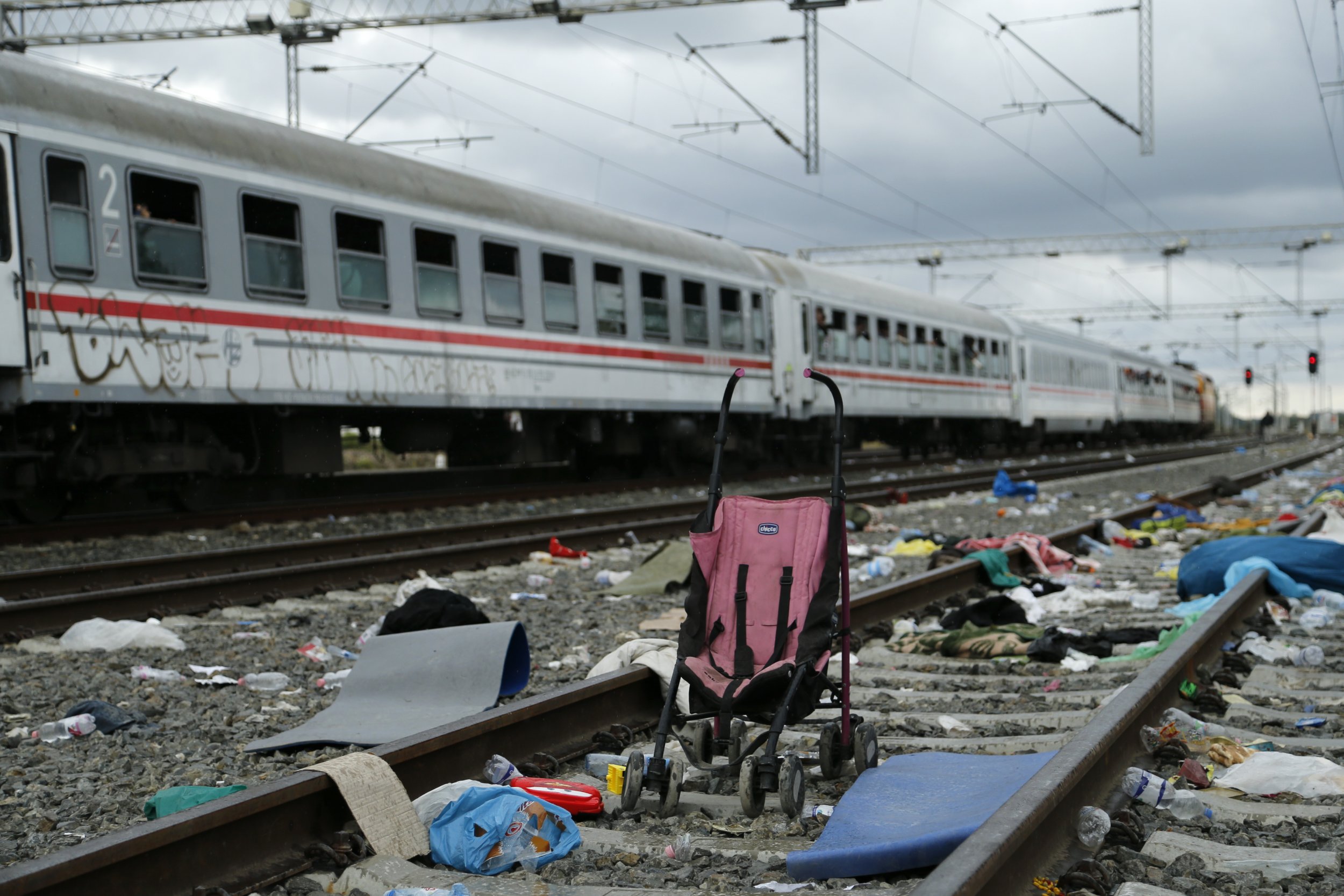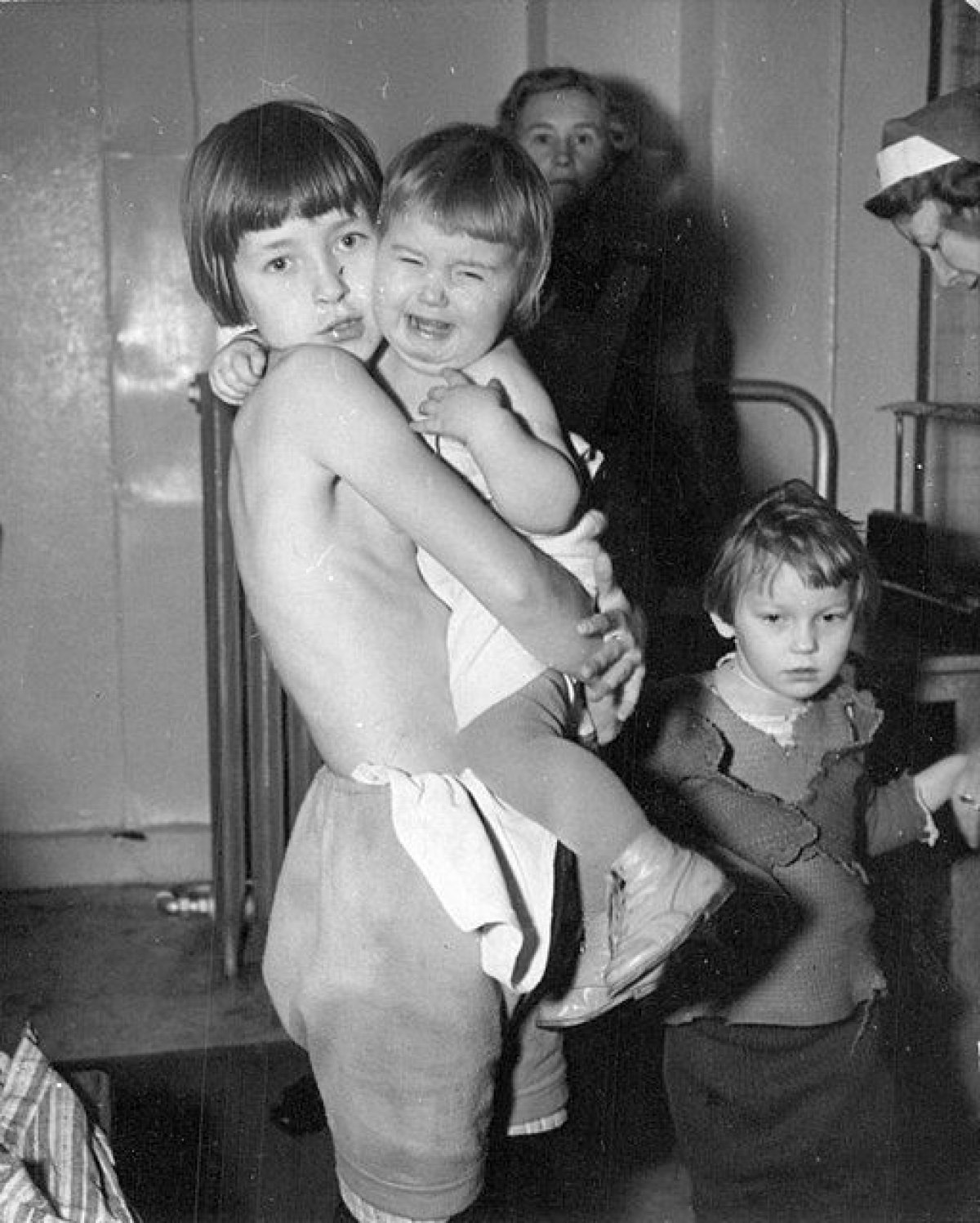
During World War II 50,000 Finnish children were sent away from their parents to temporary foster care in Sweden. A new study builds the case that adverse events like this in childhood can have deep psychological consequences not only for those directly affected, but also for their descendants.
Past research has shown that many of the Finnish war children who were evacuated went on to have a much higher rate of psychiatric hospitalization than the children who stayed. The new study, by the same set of researchers, finds that those children may have passed down some of that trauma to the next generation. Specifically, daughters of female evacuees showed a higher rate of psychiatric hospitalization than the children of those who were not evacuated.
"It wasn't a foregone conclusion that we'd have seen these results," Stephen Gilman, an author on the new study published in JAMA Psychiatry told Newsweek .
Gilman, an American epidemiologist at the National Institutes of Health, began his investigations into the Finnish war children by collaborating with Torsten and Nina Santavirtas, Swedish researchers who were studying records of evacuated children. In 2015, he found that those children had higher rates of mental illness compared to their counterparts who stayed.

"It's a really well conducted study," James Kirkbride, a psychiatric epidemiologist at University College London, told Newsweek. Being able to look at Finland's public records allowed the researchers to compare the evacuated children to other children—in some cases their cousins—who were left behind. This allowed them to be reasonably sure the effects they were seeing weren't purely random (most research on mental health considers comparing siblings the gold standard in this regard).
As to the impact it had on those who were evacuated as children, there's a good amount of research that shows that disrupting parental attachment early in childhood can cause harm later on.
Dylan Gee, a psychologist at Yale, told Newsweek that many past studies have shown that adverse childhood events, particularly separation from parents or other events that damage family ties, can sometimes lead to profound psychological distress later in life. There's even clear research on how that damage is borne out in different parts of the brain, she said.
But, she cautions the study doesn't untangle how or why the daughters of female evacuees showed higher rates of psychiatric hospitalization. Figuring out how or why some of the second-generation children of those evacuated have seemingly higher rates of mood disorders requires further study.
"We know from epidemiology of mood disorders that there's a higher incidence of mood disorders in women than men," Gilman said, adding that this was an effect they saw in their earlier study of the evacuees, themselves. Female evacuees had a higher rate of psychiatric hospitalization than male evacuees.
Kirkbride speculated that if researchers were able to look at similar situations with greater numbers of people affected in the first place (the number of Finnish evacuee descendants, as well as the number hospitalized, was relatively small), they might see an effect that extends to disorders beyond mood disorders.

Gee also notes that there's no one-size-fits-all effect among the Finnish child evacuees. Some evacuees and their children were not as affected.
Finland, which officially sided with Nazi Germany but fought against the Soviet Union, occupied a uniquely complicated position in World War II. The rules by which they evacuated children were selective: some stayed, while those whose fathers died in combat or whose homes were destroyed were sent to Sweden. And the experience, while traumatic for some, was likely not for others. Gee emphasized that when it comes to adverse childhood events, separate, poorly understood factors from environment to age at the time of separation to genetic or epigenetic factors may influence the outcomes for a child.
All the same, the situation of Finnish children proved so traumatic in some cases that it raises similar concerns for the many other children who were placed in adverse circumstances in World War II, from being moved from their homes to being sent to concentration camps. And similar effects may be seen among children who are living through conflict today in places like Syria, where a picture of a boy pulled from the rubble of a building in Aleppo briefly captured the public's attention.
"What is the relevance of our findings to situations today of armed conflict?" Gilman said. "That is, of course, a really challenging question to answer."
As he and his co-authors write, it's hard to make direct comparisons because of the lack of government records documenting the current refugee crises compared to the Finnish evacuation program. And whereas Finnish children were sent to Sweden for 2 to 5 years, contemporary refugee crises have much a longer life.
While the study authors acknowledge that more research is needed to understand the effects of today's situations as they unfold, they conclude one might expect "the intergenerational consequences of war-related experiences during childhood to be even stronger today."
Uncommon Knowledge
Newsweek is committed to challenging conventional wisdom and finding connections in the search for common ground.
Newsweek is committed to challenging conventional wisdom and finding connections in the search for common ground.
About the writer
Joseph Frankel is a science and health writer at Newsweek. He has previously worked for The Atlantic and WNYC.
To read how Newsweek uses AI as a newsroom tool, Click here.








